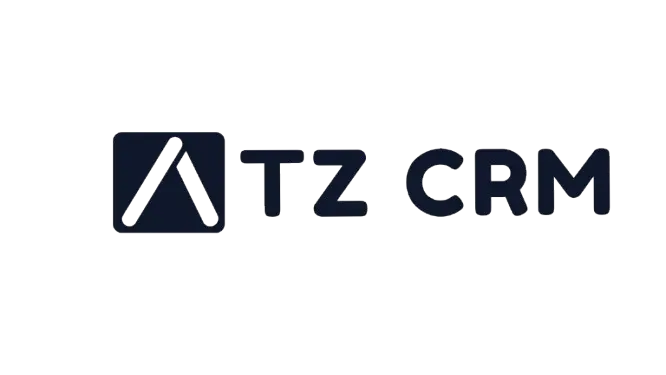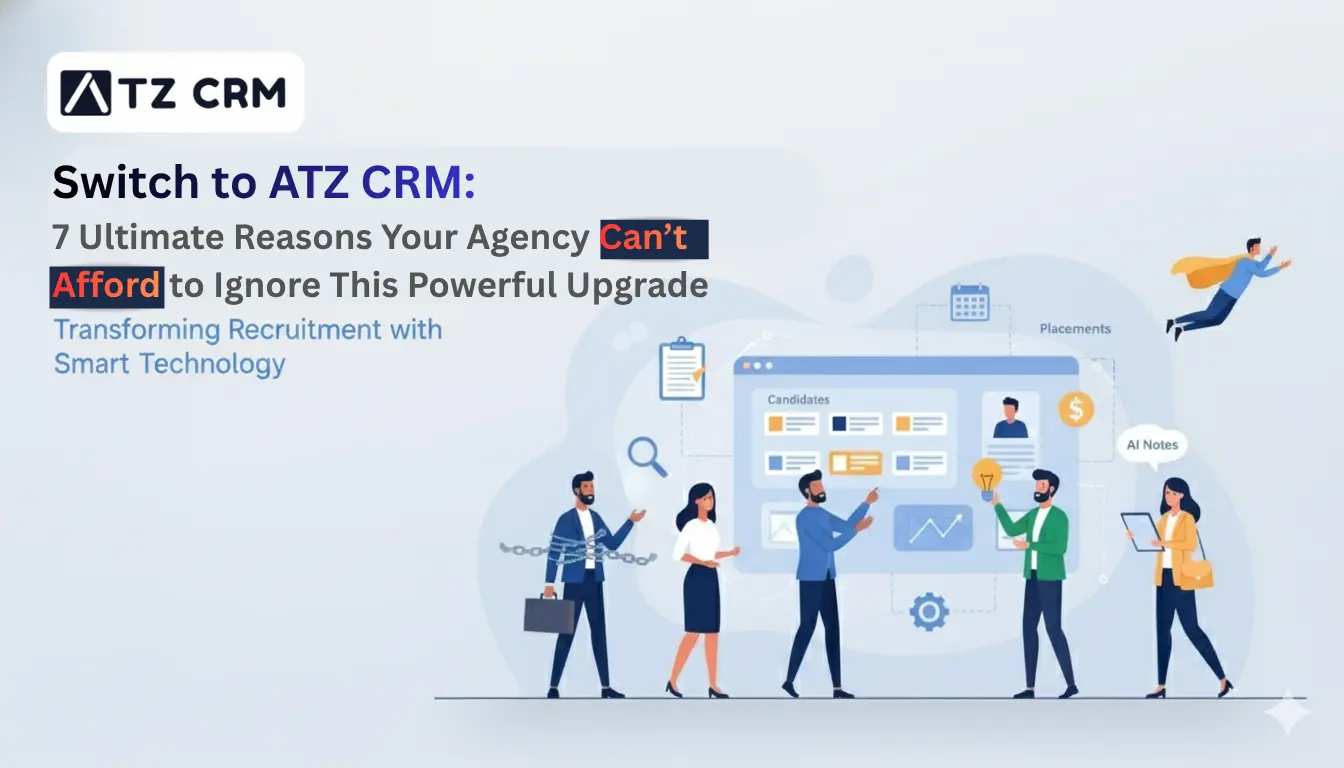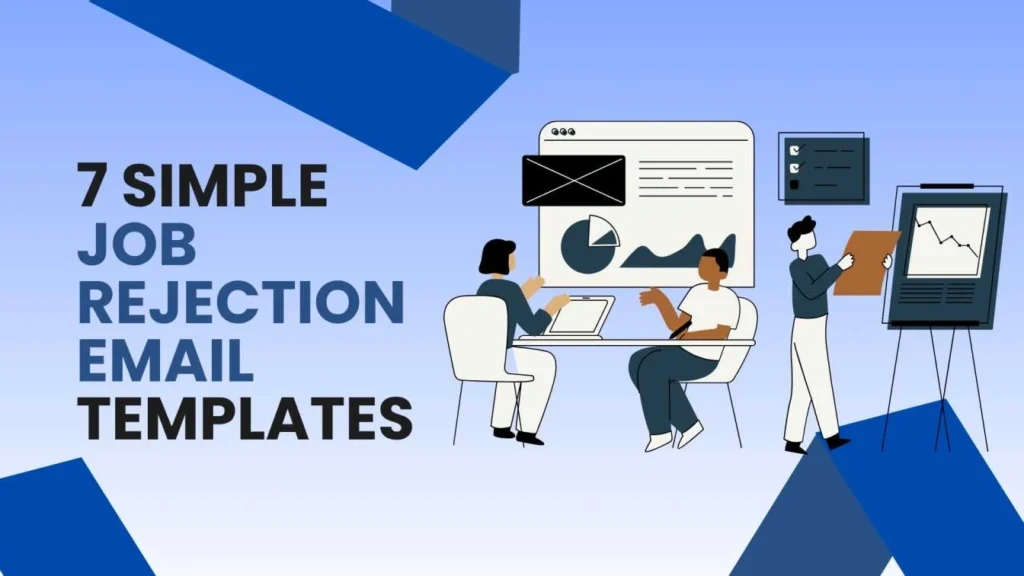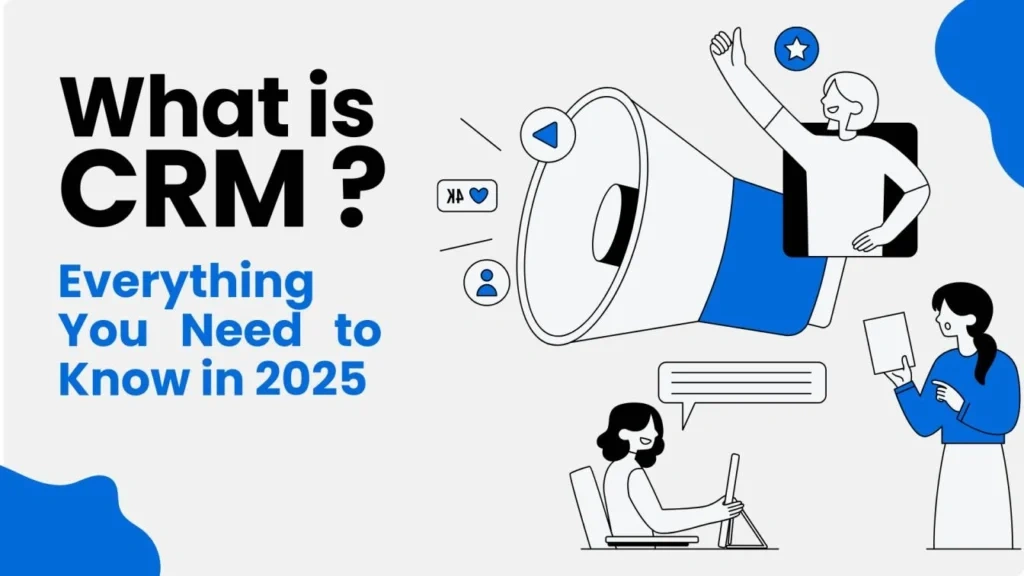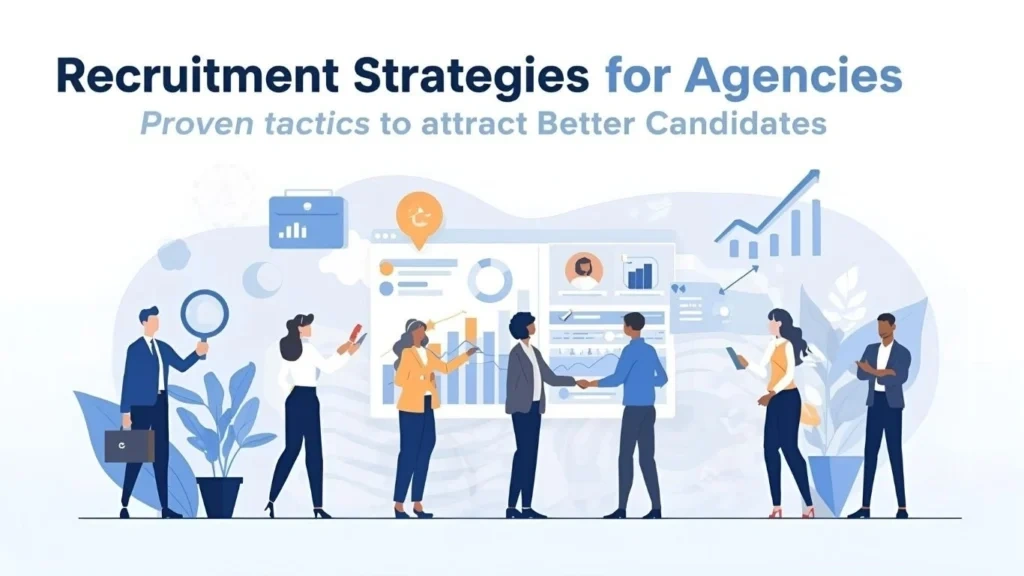· Recruitment · 8 min read
Contract Staffing: The Ultimate Agency Playbook for Success in 2025
Master contract staffing with our complete agency playbook. Learn the benefits, challenges, and strategies of contract staffing.
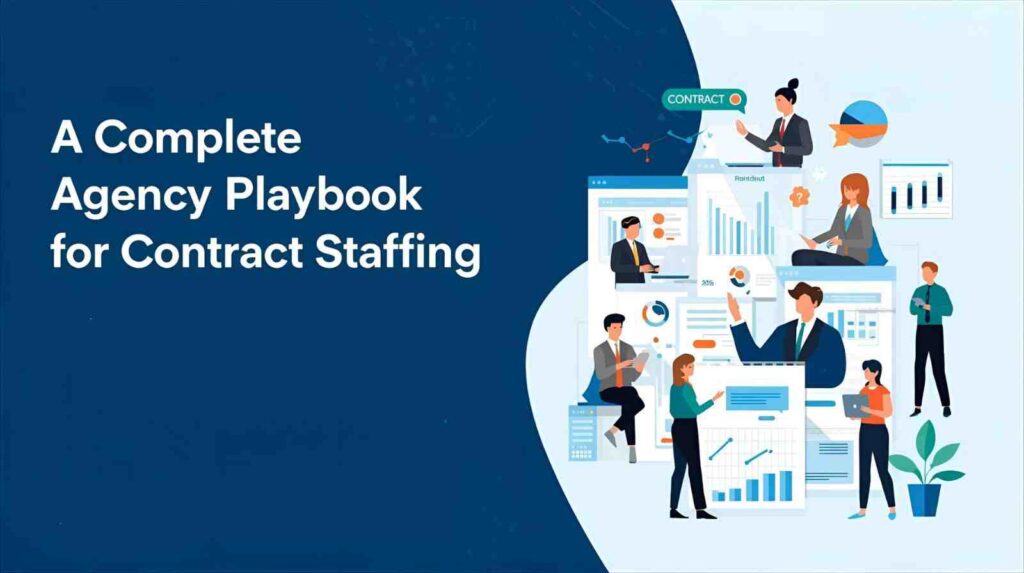
Contract staffing is transforming the way companies hire, enabling them to stay competitive in a rapidly evolving market. Agencies that once focused only on permanent jobs are now seeing contract staffing as a way to grow and stay steady. As businesses look for more flexibility and skilled talent during uncertain times, agencies that do well with contract staffing in 2025 will stand out.
This blog will help agencies, whether you are just starting with contract staffing or already growing your operations, understand the model, its benefits, challenges, and the technology behind it.
Are you ready to prepare your agency for the future and succeed in 2025? Let’s get started!
What is Contract Staffing?
Contract staffing is a staffing model where client companies bring in professionals for a temporary period or on a project basis rather than employing them permanently. Instead of onboarding full-time employees with long-term commitments, client companies hire contractors for specific roles, timelines, or skill sets.
For agencies, this means acting as the bridge: the contractor is employed by the staffing agency or on the agency’s payroll partner while working for the client company. This unique arrangement allows businesses to remain agile while agencies build recurring revenue streams.
Related Blog: The Best Temporary Staffing Software Free Tools For Startup
Why Contract Staffing is Booming in 2025?
Several forces are shaping the demand for contract staffing:
1. Economic Uncertainty
Companies are cautious about headcount in uncertain times. Contract workers provide flexibility without long-term commitments.
2. Skill Gaps
Specialised projects, especially in IT, healthcare, and engineering, require niche skills. Contract professionals often bring expertise without overhead.
3. Remote & Hybrid Work
With distributed teams becoming the standard, contract staffing makes transnational hiring smoother.
4. Employee Preference
Many professionals now prefer the independence, flexibility, and higher earning potential of contract roles.
For agencies, these trends spell opportunity. By offering contract staffing, agencies can create a steady revenue pipeline while building stronger client relationships.
Related Blog: DEI Hiring Strategies: How To Attract Diverse Candidates
Challenges Agencies Face in Contract Staffing:
While the staffing model is lucrative, agencies often hit pitching blocks:
1. Payroll and Compliance
Handling taxes, benefits, and labour laws across regions can be complex.
2. Cash Flow Gaps
Agencies pay contractors weekly or once every two weeks, but may receive client payments 30 to 60 days later.
3. Contract Management
Tracking timesheets, invoices, and renewals can get overwhelming without the right systems.
4. Talent Pipeline
Building and maintaining a pool of reliable contractors requires ongoing effort.
These challenges highlight why technology and process optimisation are key to scaling contract staffing.
Related Blog: The Ultimate Guide To Building And Managing A Talent Pipeline For Recruiters
Building a Contract Staffing Strategy in 2025:
Here’s a step-by-step roadmap agencies can follow:

1. Identify Your Niche
Choose industries where contract staffing is in high demand—IT, healthcare, engineering, finance, or creative roles. A focused niche builds credibility faster.
2. Educate Clients
Many companies still don’t fully understand the benefits of contract staffing. Position yourself as an advisor, not just a recruiter. Share insights, compliance knowledge, and ROI (Return On Investment) examples.
3. Build a Contractor Network
Proactively engage contractors, even before jobs come in. Create a database of scrutinised professionals who can be deployed quickly.
Related Blog: Best RecruiterFlow Alternatives For Small And Medium Recruiting Firms in 2025
4. Streamline Compliance
Partner with payroll and compliance experts or use software that manages tax, insurance, and legal complexities. This is often a major pain point for client companies.
5. Invest in Technology
Adopt a CRM and staffing platform that automates the heavy lifting. ATZ CRM, for example, helps agencies handle everything from client onboarding to contractor payments in one ecosystem.
6. Focus on Cash Flow
Explore invoice factoring, credit lines, or payroll management services so you can always pay contractors on time, even if clients delay payments.
7. Deliver Experience, Not Just Placements
Your role doesn’t end when the contractor starts. Regular check-ins, performance reviews, and client updates show you’re invested in long-term success.
Related Blog: The Ultimate Recruit CRM Showdown: Best ATS Ranked
Benefits of Contract Staffing for Agencies:
1. Recurring Revenue Stream:
Unlike one-off permanent placements, contract staffing allows agencies to earn ongoing margins for as long as the contractor is on assignment. This creates a predictable cash flow.
2. Stronger Client Partnerships:
When you provide contract workers, you’re no longer just a vendor filling one position. You become a strategic partner who supports workforce planning and talent flexibility.
3. Market Differentiation:
Agencies that only offer permanent hires are at risk of being left behind. Offering contract staffing gives you a competitive edge and positions your agency as future-ready.
4. Upselling Opportunities:
Contract staffing often opens the door for permanent placements later, giving agencies dual revenue channels with the same clients.
Related Blog: 15 Free Job Posting Sites USA-Based Recruiters Can Use to Look for Diverse Talent
Benefits of Contract Staffing for Client Businesses and Companies:
1. Flexibility:
Client companies can scale teams up or down based on project needs.
2. Cost Savings:
No long-term benefits or overhead costs associated with permanent employees.
3. Speed:
Agencies can fill contract roles faster, especially with a strong contractor network.
4. Risk Management:
Contractors remain on the agency’s payroll, reducing compliance and HR risks for the client company.
Related Blog: Discover 10 Free Most Powerful ATS For Small Businesses
Benefits of Contract Staffing for Professionals:
1. Independence:
Freedom to choose projects and companies.
2. Higher Pay Rates:
Contractors often earn more per hour compared to salaried employees.
3. Skill Development:
Exposure to diverse industries, teams, and technologies.
4. Work-Life Flexibility:
Ability to balance personal priorities with career goals.
Related Blog: Best AI ChatGPT Prompts For Recruiters
Technology’s Role in Scaling Contract Staffing:
This is where solutions like ATZ CRM transform the game. Contract staffing is inherently complex, and manual processes won’t cut it in 2025. Agencies need modern recruitment technology to stay ahead.
1. End-to-End Contractor Management:
Track invoices and compliance documents in one place.
2. Automation:
Reduce repetitive admin tasks like chasing timesheets or generating invoices.
3. Client and Candidate Portals:
Give both sides transparency into the process, building trust.
4. Analytics:
Real-time dashboards provide insights into contractor utilisation, revenue, and client satisfaction.
With the right tech, agencies can move from reactive staffing to a proactive, growth-driven model.
Related Blog: 12 Best Recruitment CRM For Recruitment Agencies – Complete Guide
Contract Staffing Trends to Watch in 2025:
1. AI-Powered Matching:
Intelligent algorithms are speeding up candidate contractor-client company alignment.
2. Global Talent Pools:
Transnational hiring is easier with remote-friendly contracts and compliance platforms.
3. On-Demand Staffing Models:
Client companies want talent “as-a-service,” and agencies are adapting subscription-like models.
4. Freelancer-Contractor Convergence:
More freelancers are choosing structured contract roles for stability.
Sustainability in Staffing: Clients are increasingly valuing diversity, equity, and environmentally responsible work practices in their staffing partners.
Related Blog: The Best Bullhorn Alternative For Effortless Hiring
Why Agencies Must Act Now?
Contract staffing isn’t just another revenue channel, but it’s the future of recruitment. If staffing agencies don’t adapt to the rising demand for contract staffing and continue relying only on traditional permanent placements, they may become less competitive and less valuable to clients. By building a contract staffing function in 2025, agencies can:
- Increase profitability with recurring revenue
- Deepen client loyalty
- Attract top contractors who value flexibility
- Position themselves as indispensable workforce partners
Related Blog: The Best ATS+CRM Alternatives To Loxo For Growing Teams
Key takeaways for Your Agency Playbook for Successful Contract Staffing:
Contract staffing is more than filling temporary roles. It’s about building a resilient, future-ready staffing business. Agencies that adopt the right mix of strategy, technology, and client education will thrive in 2025 and beyond.
With the right CRM and staffing tools (like ATZ CRM), agencies can simplify payroll, compliance, timesheets, invoicing, and contractor engagement, freeing recruiters to focus on what matters most: relationships and growth.
If you’re ready to future-proof your staffing agency, contract staffing is your strongest play. And with the right systems in place, you’ll be well-equipped to make 2025 your most successful year yet.
FAQs
1. What is the difference between temporary and contract staff?
Temporary staff fill short-term gaps with undefined roles and hourly pay, while contract staff work on specific projects with fixed timelines and structured compensation.
2. How does contract recruitment work?
Contract recruitment is the hiring of independent professionals for specific projects or fixed periods, helping companies fill skill gaps and manage workloads without long-term commitments.
3. What is freelance staffing?
Freelance staffing involves hiring self-employed professionals or independent contractors for specific roles or projects.
4. What is the difference between a contract and a contract to hire?
Contract staffing involves hiring independent professionals for a fixed period, without any obligation for future projects. In contrast, contract-to-hire serves as a trial period, allowing companies to evaluate skills, performance, and cultural fit before offering a permanent position.
5. Can you quit a job after signing a contract?
Yes, you can quit a job under contract, but plan carefully. Ensure your next opportunity is secure, notify HR professionally, and leave on good terms.
